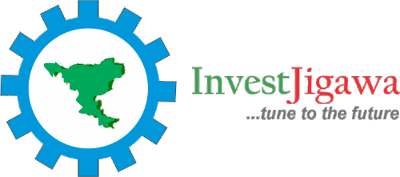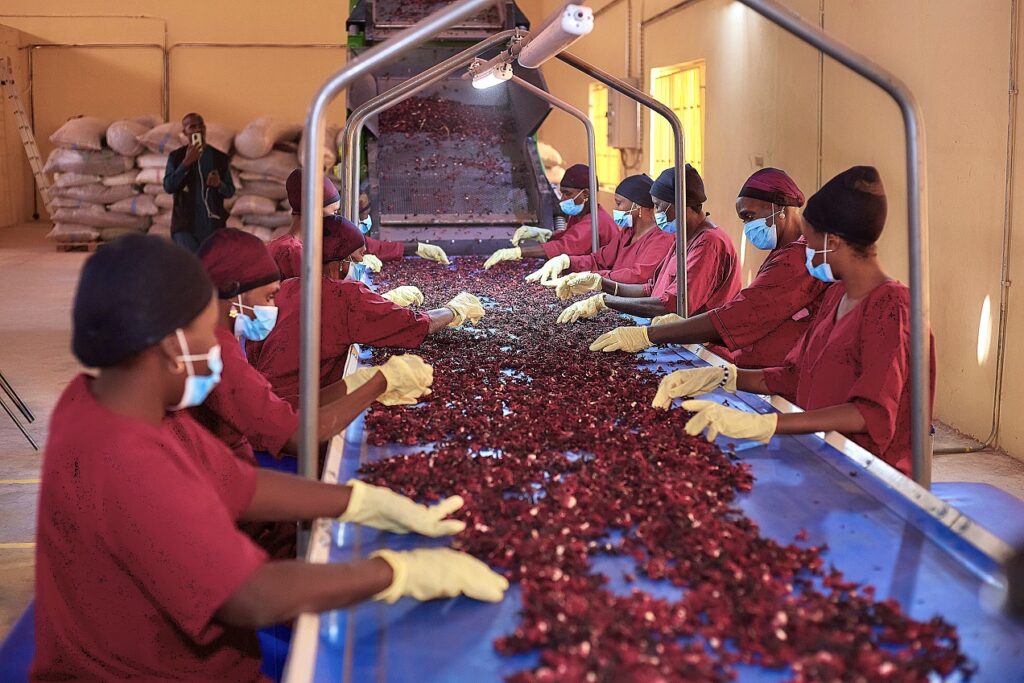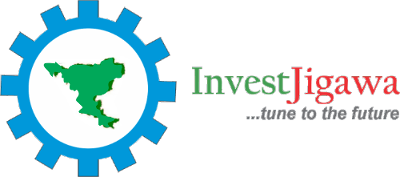INTRODUCTION
This is the dominant sector of the state’s economy with potentials of addressing the global market for crops such as sesame, wheat and rice, which are produced in Jigawa, continue to grow. Jigawa is one of the top producers of sesame seeds in Nigeria, with high export potential. It also has an annual production capacity of over 1.7 million metric tons of grains and cereals, contributing significantly to national food security. Recently the state adopted its reviewed agricultural policy to address the climate smart agricultural system, improve irrigation, mechanization, and post-harvest processing, thereby reducing food waste and enhancing productivity.
SECTOR OVERVIEW
Agriculture is the cornerstone of Jigawa State’s economy, contributing over 60% of the state’s Gross Domestic Product (GDP) and employing more than 90% of its population. The state has a total land area of 22,410 km², with 70% of this land being arable. Jigawa is renowned for its food crop production, livestock farming, and cash crop exports, notably sesame and hibiscus flower, which has positioned the state as one of the leading producers of sesame, and the largest producer of hibiscus in Nigeria.
The state’s diverse agro-ecological zones support the cultivation of various crops, including millet, sorghum, rice, wheat, tomato, cowpea, groundnuts, and maize, making it a critical hub for food production in Nigeria. With an estimated arable land of nearly 2 million hectares, only about 30% is currently cultivated, indicating substantial potential for expansion and investment. The state government has prioritized agricultural development through initiatives that promote mechanization, irrigation, and access to improved seed varieties, thereby enhancing productivity.
Additionally, the presence of agro-processing facilities is on the rise, aimed at adding value to raw agricultural products and improving food security. And despite challenges in the areas of infrastructure, limited access to credit for businesses, and climate variability which poses risks to productivity and profitability, because of supportive government policies among other things, Jigawa State is well-positioned to attract investors interested in tapping into its agricultural potential, fostering both local food production and export opportunities.
Crop Production:
The State is endowed with favorable weather condition and requisite natural resources to support crop production of both food and cash crops all year round. This includes but not limited to rice, wheat, maize, sorghum, millet, sesame seeds, hibiscus flower, ground nuts, and tomato. Below is the position of some of the crop the crops with high potentials in the state:
- Sesame seeds: Jigawa contributes 40% of Nigeria’s sesame production, with an annual output of over 130,000 metric tons. The high demand for sesame in international markets, particularly in Asia and Europe, presents enormous export opportunities. The value chain is ripe for investment in processing industries, especially for sesame oil extraction.
- Rice: Jigawa is a major rice producer, cultivating over 150,000 hectares of rice fields annually with over 600,000 metric tons annual production capacity. With the federal government’s push for rice self-sufficiency, there is an increasing need for milling facilities, modern storage units, and packaging solutions in the state. Rice mills and value addition services can capitalize on State’s annual rice output.
- Groundnuts and Millet: Other significant crops include groundnuts and millet. Groundnut farming accounts for 14% of the state’s total agricultural output, providing raw material for oil mills and export. Millet, a staple food, is also grown in large quantities with average annual production capacity of nearly 600,000 metric tons, making Jigawa one of Nigeria’s primary producers.
Livestock Farming:
The state is home to a large population of cattle, goats, sheep, and poultry. Livestock farming accounts for about 20% of Jigawa’s agricultural GDP. With a large part of the State lying in the Sudan savannah vegetative belt, it has vast grazing land (over 400 grazing reserves) suitable for livestock production. Current livestock population is estimated at 3.06 million cattle, 5.6 million sheep and 6.6 million goats, and 15.9 million poultry. The sector offers a potential for investment in meat processing, dairy production, leather industries, and animal feed production. Jigawa State has one of the largest livestock markets in West Africa, located at Maigatari. Despite its large livestock population (19.8 million cattle, 43.4 million sheep, 76 million goats and 213 million poultry), Nigeria still imports meat and dairy products. In 2020 for instance, Nigeria spent about USD1.5bn on milk importation, opening opportunities for investors to meet local and global demand.
Hover Box Element
Click edit button to change this text. Lorem ipsum dolor sit amet, consectetur adipiscing elit. Ut elit tellus, luctus nec ullamcorper mattis, pulvinar dapibus leo.
INVESTMENT OPPORTUNITIES
- Rice Milling: Jigawa’s annual rice production of over 600,000 metric tons creates a demand for large-scale milling facilities. The state currently has limited milling capacity. For example, by 2021 Nigeria’s rice production capacity was 3.7 million tonnes, but the consumption was 6.4 million tonnes annually. Investors can capitalise on this shortfall by setting up modern processing plants.
- Sesame Processing: With an annual sesame output of over 130,000 metric tons, there is significant potential for sesame oil extraction plants and export packaging industries.
- Dairy Processing: With over 3 million cattle, there is a substantial opportunity for setting up milk processing plants for dairy products such as cheese, yogurt, and powdered milk.
- Agro-Processing and Storage Facilities: Given Jigawa’s diverse crop production, investments in food processing units, storage, and cold chain logistics are highly encouraged to reduce post-harvest losses and ensure food security.
SECTOR PERFORMANCE
In 2020, Jigawa’s agriculture sector generated over ₦200 billion in output, contributing over 60% to the state’s GDP. The state’s proximity to major domestic and export markets, including Kano, Lagos, and European and Asian countries, makes it an ideal location for agro-industrial ventures with export potentials.





